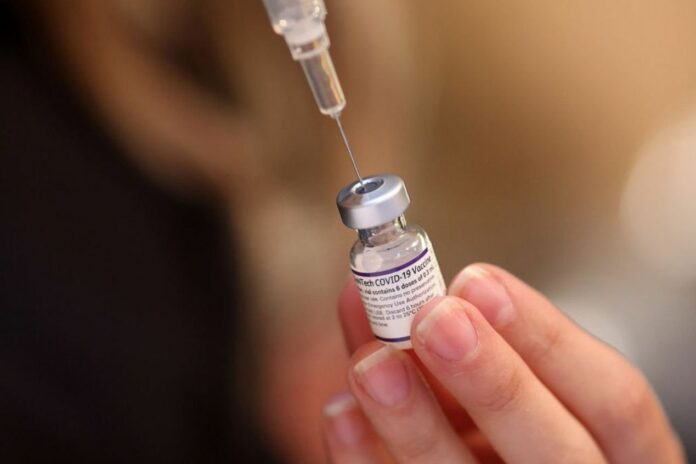New research from UC San Francisco has shown that COVID-19 vaccines offer varying degrees of protection for up to six months after administration.
The BOOST study tracked the antibody response of 498 healthy volunteers aged 18 to 88 who had received the Pfizer, Moderna, or Johnson & Johnson vaccines.
When the study was done in the spring of 2021, all three vaccines had been approved by the Food and Drug Administration (FDA).
One month after getting their shots, subjects who got the Pfizer vaccine had a 21 times higher antibody reaction than those who got the Johnson & Johnson vaccine. Those who got the Moderna vaccine were a long way ahead, with a 51 times higher vaccine response than those who got the Johnson & Johnson vaccine.
Volunteers were checked for a history of COVID infection before to receiving the vaccination to guarantee its efficacy.
When figuring out antibody levels, any previous infections were taken into account.
Antibody levels for both Pfizer and Moderna vaccinations dropped over time, but by month six, individuals receiving the Johnson & Johnson vaccine had caught up to, and even surpassed, those receiving the Moderna vaccine.
“This was the most striking finding,” comments first author Aric Prather. “While the mechanism for this increase is unknown, other smaller studies have suggested this trend, leading us to believe there are robust phenomena not specific to our sample.”
Age, sex, body mass index, and smoking status were also found to play a role in antibody response.
These findings were published in the journal Scientific Reports on May 9, 2023.
Smoking Reduces Immune Response by 240%
The researchers discovered that additional parameters had an influence on efficacy, supporting earlier findings. Antibodies were overall 17% lower in older adults taking Pfizer and 11% lower in older adults taking Johnson & Johnson but remained the same in older adults taking Moderna. In addition, in older adults taking Johnson & Johnson but not Pfizer or Moderna, antibodies were 30% lower in men than in women, regardless of the vaccine type, and 240% lower in smokers than in non-smokers, regardless of the vaccine type.
“It is encouraging that the stronger vaccine, Moderna, mitigated the effects of some risk factors, particularly age,” points out senior author Elissa Epel.
Pfizer and Moderna both use RNA technology, which delivers genetic information to cells and trains the immune system to detect and combat the coronavirus. The Johnson & Johnson, on the other hand, transmits instructions on how to eliminate the virus using the more conventional viral-based method.
The FDA now recommends the newer bivalent vaccines that target the original COVID strain as well as omicron BA.4 and BA.5, with boosters restricted to seniors and immunocompromised individuals.
But the study’s conclusion that some risk factors could make the drugs less effective may also be true for the bivalents, which are made by Pfizer and Moderna.
“While we have not studied the bivalent vaccination specifically, it’s likely that factors like older age, male sex, smoking status and higher BMI can prevent optimal antibody response to the vaccine,” adds Epel.
The next study will compare the efficiency of the bivalent vaccines made by Moderna and Pfizer.
Image Credit: Brian Cassella/Chicago Tribune/Tribune News Service via Getty Images
